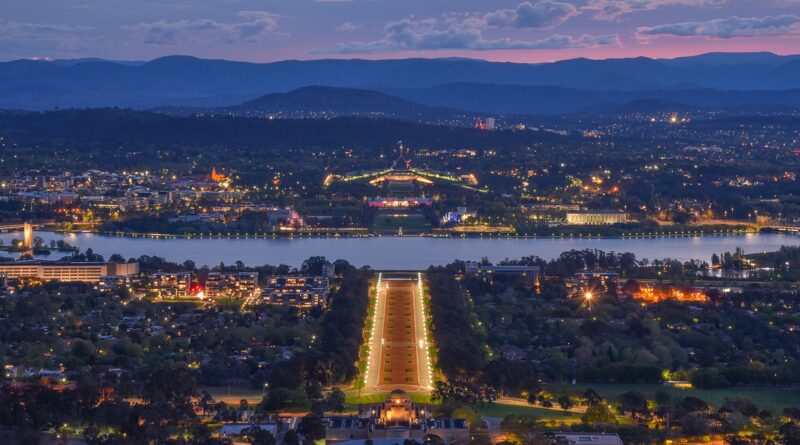View from The Hill: Don’t play ‘shakedown’ with me, Morrison tells Queensland
Scott Morrison has a new attack word. “Shakedown”.
“Shakedown” is defined as “an illegal or deceitful attempt to get money from someone, for example by swindling or blackmailing them”.
In yet another episode in the old federal-state blame game, the Morrison government is accusing Queensland in particular of this unsavoury practice, with its Mafia connotations.
As NSW, Victoria and the ACT look towards moving out of lockdowns, the strain will come on already stretched hospital systems.
The hospital capacity of Queensland, with minimal COVID, would be quickly tested once it opened its border – as the Morrison government wants it to do in accordance with the COVID national plan’s vaccination levels. The same goes for Western Australia, which has a notoriously stressed hospital system.
Last week health ministers from every state and territory signed a letter to the federal government saying: “We are entering into the most critical phase of the COVID-19 pandemic response for our hospital systems.
Read more: Hospital emergency departments are under intense pressure. What to know before you go
“While we still need collaborative effort to find long term solutions to issues impacting our hospital systems, these have now been overtaken by the pressing need to address the situation at hand.
“All states and territories require immediate additional Commonwealth funding to support the pressures currently on our health systems.”
On Friday Queensland Premier Annastacia Palaszczuk linked the need for more hospital funding to Queensland’s border opening.
Morrison pushed back, declaring the pandemic should not “be used as an excuse for shakedown politics”.
On Tuesday the prime minister was giving “shakedown” another workout, targeting Queensland hard.
Pressed on Brisbane radio about Palaszczuk wanting more money, Morrison said, “we’re not going to respond to shakedowns in a pandemic.”
He pointed out that “we’ve increased our funding to hospitals in Queensland, since we came to government, by 99.2%”, saying this compared to a 55.3% increase by Queensland over the same period.
Read more: Vaccination status – when your medical information is private and when it’s not
In another interview Morrison went further. “[To] say, ‘well … I’m going to hold the federal government to ransom and to seek to extort from them money on the basis of COVID’ – I just don’t think is the right way to go.”
“We’ve shared 50/50 the costs of COVID on the health system, more than $30 billion around the country […] So we’ve been doing our bit.
“Of course there are challenges, but as a state government, they’ve got to be responsible for their state health system. New South Wales is getting on with it. Victoria is getting on with it. The ACT is getting on with it. So Queensland needs to get on with it.”
There have been mixed messages out of Queensland about whether its hospital system is adequate to the challenges ahead.
Health Minister Greg Hunt insisted on Tuesday “on the advice that we have, all of the states and territories have prepared. They’ve prepared for a surge.”
If Queensland had an issue when they did not have COVID pressures, “that is not related to COVID”, he said, suggesting the state government should spend more money.
Read more: How COVID health advice and modelling has been opaque, slow to change and politicised in Australia
Hunt said Queensland had “got themselves in a pickle of on the one hand saying their hospitals are prepared, on the other hand trying to justify using money as a basis for closing borders.”
The adequacy, or not, of the nation’s hospital systems in general, and that in Queensland in particular, is documented in work for national cabinet that’s overseen by the Secretary of the Health Department Brendan Murphy and regularly updated for national cabinet.
Murphy was asked during a Tuesday appearance with Hunt when that document would be released. He said:“I would favour a transparent approach, but national cabinet will make that decision”.
The national cabinet should immediately release this assessment.
The public has the right to know whether we can be confident about hospital adequacy as we move into this new phase of the pandemic.
![]()
Michelle Grattan does not work for, consult, own shares in or receive funding from any company or organisation that would benefit from this article, and has disclosed no relevant affiliations beyond their academic appointment.

